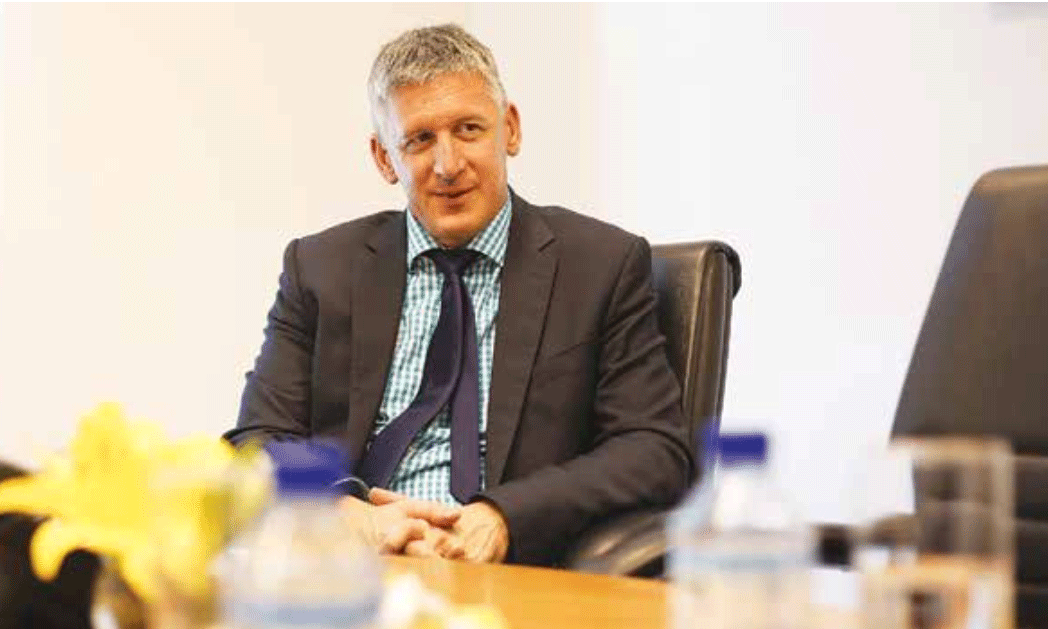Scott Lambert gives counsel on why legal advice matters
The head of Al Tamimi’s construction practice explains why it’s vital contractors get the right type of legal advice

For the last four years, EC Harris, the Arcadis-owned built asset consultancy, has been keeping an eye on construction disputes across the Middle East, charting the value of these disputes on a regional and global level. During that time, the consultancy has found that the average value of construction contracts under dispute in the Middle East is higher than the global average. In fact, in 2011 and 2012, the regional figures were amongst the highest in the world. However, the good news is that after a peak in 2011, the average value of contracts under dispute has dropped, from $112.5 million in 2011 to just $40.9 million in 2013.
These figures represent a natural correction in the market, as disputes rose in 2010, 2011 and 2012, stemming from the market collapse in 2009 and 2010. The timing of the peak in 2011 was due to larger disputes taking longer to reach the dispute stage, the EC Harris report said.
With the GCC construction market now well on the road to recovery, and another construction boom on the horizon, it is perhaps a good time to take stock and assess where we are in terms of construction legislation and the mood of the industry, when it comes to this most vital of issues.
Big Project ME sat down with Scott Lambert, an Australian lawyer who has just been appointed regional head of Construction and Infrastructure at Al Tamimi & Company, the GCC’s largest law firm. Lambert has been tasked with building upon the successes of the firm’s Construction and Infrastructure practice, while offering expertise at a time when construction is gaining real momentum across the region.
“I wanted a new challenge, the chance to do something else with my life, to build a team, and at Al Tamimi & Company, the opportunity presented itself,” he says during an interview at the law firm’s plush offices in DIFC. “Culturally, it’s a great fit for me. This firm is very collegiate; it’s very open and cooperative. It’s got all the systems in place and it feels very much like home to me.”
READ MORE: Opinion – Why contractors should listen to the lawyers
Prior to joining Al Tamimi at the end of 2014, Lambert was a partner at Holding Redlich, where he had a top-tier construction practice known throughout the Australian construction industry for its knowledge, accessibility and communication. As part of his responsibilities, Lambert practised across Australia, as well as working in Fiji, New Zealand and Papua New Guinea. He believes this diverse experience will stand him in good stead in his new role at Al Tamimi.
“Having a regional position is something I’m comfortable with because it’s similar to dealing with a range of states, except you’re dealing with a range of countries. They’ve got similar laws – with regional differences, of course – but it’s something that I’m used to. The actual position itself is also a natural fit for me,” he says.
“I hope to grow and create a practice that reflects Al Tamimi’s philosophies, and my own personal beliefs. It’s all about being accessible to clients and giving practical advice and developing expertise. My role, as I see it, is really about mentoring the team and helping each lawyer develop. Through that process, we’ll also grow the client base, grow the work that we do and build the best regional practice – the only truly regional practice – in the Middle East,” Lambert continues.
Although the team currently consists of just five members, Lambert says that there are plans in place to grow it further, but points out that the first 12 months of his reign will focus on profile-raising, marketing and growing the client base. He adds that there are already team members in Abu Dhabi and Riyadh, while Al Tamimi has a construction arbitration presence in Sharjah and Ras Al Khaimah in the UAE, as well as in Muscat, Oman and Doha, Qatar.
READ MORE: Contractors ‘have not absorbed lessons of Dubai property crash’
Given that Al Tamimi is the largest regional law firm, Lambert says that it makes complete sense to go where the business is, given the opportunities available to them. “Contractors do not recognise boundaries. They will go where the work is, and we’ve got to be there for our clients. So it’s about providing that offering to them, because that’s what they’ll be looking for,” he explains.
Moving away from the business itself, Lambert says that having legal assistance instantly available will benefit contractors tremendously, as the current rejuvenation of the Middle East construction market brings pitfalls with it.
“I think that contractors need to focus on the contracts that they enter into and the subcontracts that they write, as well as their contract administration,” he says. “Contractors are contractors the world over. Normally, it takes one good litigation for a contractor to realise that they need to start spending some money at the start of a project. Spending a bit up front saves you the hassle of a big arbitration down the track,” Lambert insists.
“It’s important that contractors get legal advice up front, legal guidance on what they’re signing, or on their contract admin procedures as they go along, just to save them an arbitration – or to give them the right strategy to strengthen their position.
“I’ve often found that the best outcomes I’ve had with clients is when I’m almost ‘embedded’ with the tendering team. I’ll write the legal non-conformances of any tender and I’d be involved – particularly on a large project – and be an integral part of the tendering team, the commercial process and leading up to the tender contract award. I’d even be involved in training the administration staff afterwards, on what they’ve got to look out for on the contract,” he says.
As part of his plans to increase the profile of Al Tamimi & Company’s construction practice, Lambert says that he’ll be running a series of seminars in 2015, where he’ll be talking to construction firms about hot-button topics that affect their business.
READ MORE: Opinion – Why contractors should listen to the lawyers
“We will also have a free workshop offering, which I can send to businesses if they’re interested, where they can choose one of five workshops, get their project team together – the key people in their business – for one hour, and we’ll talk about that topic. And I’ll tailor it to their needs. It will be part of the awareness-raising awareness that you can save money through being more proactive with your up-front contracts,” he says.
The need for this type of education and awareness becomes apparent when you look at the makeup of the construction industry in 2015. For all the talk about the lessons learnt from the collapse of the Dubai real estate and construction markets in 2009, there has still been tremendous upheaval since then.
“While institutionalised businesses have learnt lessons and will be more cautious, however, I think those firms that have come to the industry more recently, they are less likely to remember the bad times. So lessons may not have been learnt,” Lambert warns.
Keeping this in mind, he says that there could be a few measures put in place to ensure adequate legal protection for contractors operating in the Middle East. “The region has a good practice here, as long as time is set aside to negotiate terms. The UK, Singapore, New Zealand and Australia, they have the facility to have a short-form arbitration that can be enforced, like a court judgment. In some cases, it can be 35 days from claim to judgment. That can really help get cash flow moving, and they’ve also banned ‘paid-when-paid’ and ‘paid-if-paid’ clauses, which really helps subcontractors.”
In addition, he suggests that GCC member states, in particular, could benefit from working together when it comes to legislation and guidelines for the construction market. “I’m not [suggesting] a uniform code – you’ve still got to respect state and national differences – but I think that they could move towards working together. Most of the states are fairly similar, so they could work towards having almost similar practices, or work off each other in broader principles. That’s something, a goal to be achieved. But at the same time, each state has its own nuances, and I think those nuances need to be respected,” he explains.
“I also think that they can look at other countries when it comes to making easier provisions for obtaining injunctions to stop bank guarantees being pulled. The last thing you’d want is to have a dispute and then what happens is that your performance security gets pulled on you. To get some protection for contractors around, that’s important.
“We also have to continue to look at ways to improve the enforceability of any arbitration decision. If a decision gets respected and enforced, similar to what they’ve done with the DIFC Courts, it then provides a certain environment. Finally, we also need to look at the security for payments,” Lambert outlines.
READ MORE: Contractors ‘have not absorbed lessons of Dubai property crash’
Given the circumstances in the current market, Lambert insists that now is the time for contractors of all sizes to have qualified and experienced legal advice. With construction firms chasing business across borders and into less developed markets, he tells them they need to get experienced regional advice.
“The advice I’d give to someone from the UAE doing a project in Qatar is this: Make sure that you get some regional advice and make sure you get people with regional experience. That’s because everything – all the different permits, approvals, no objections certificates, etc – is different from country to country, from municipality to municipality. And with that, you can take what the contracting practices are, but you’ve also got to nuance it to the situation and the laws of what you can and cannot do in Qatar. So that’s where we can help,” he concludes.
READ MORE: Opinion – Why contractors should listen to the lawyers























